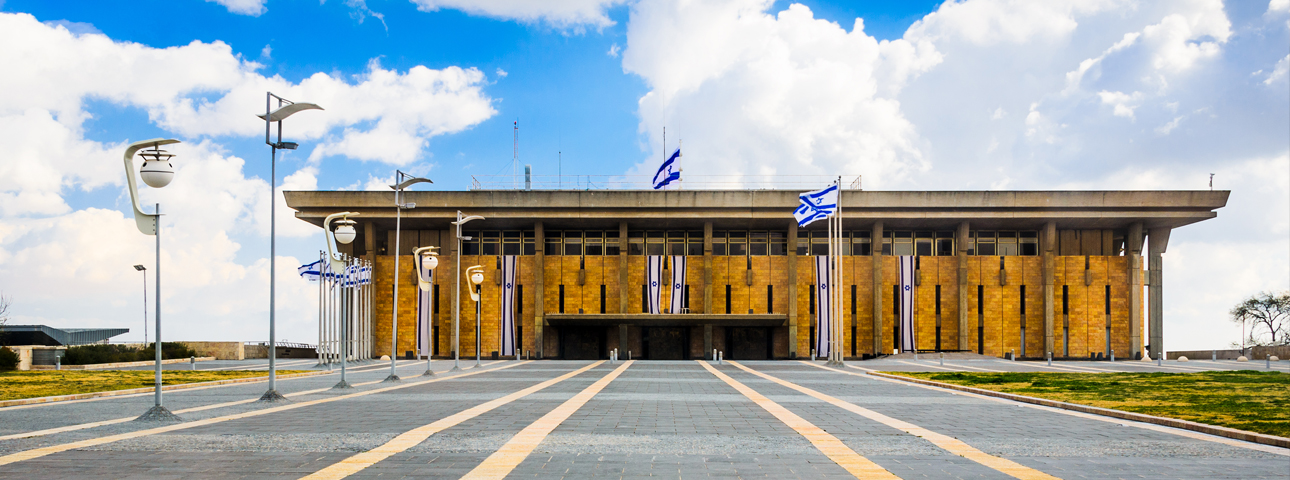Improving the Way the Knesset Functions
A set of reforms must be implemented so that Knesset members' supervisory ability over the government will be enhanced.

In recent months, the Knesset reform initiative, led by Justice Minister MK Ayelet Shaked, Tourism Minister MK Yariv Levin and Knesset Speaker MK Yuli Edelstein, has gained momentum. In addition, this reform is supported by the House Committee chairman - MK Yoav Kisch, Knesset Status Improvement Caucus - chairman MK Elazar Stern and other MKs - from the opposition as well as the governing coalition. While this issue may strike some people as insignificant, this reform could, if passed, lead to a much more effective Knesset that does better work on behalf of the Israeli public. At its core, the reform involves two central components: limiting the number of private legislation and strengthening the Knesset's oversight capacity.
Let's look at the first component. Why is it necessary to limit the number of private member bills?
The Knesset leads all other parliamentary bodies with its sheer number of private member bills. Israeli MKs proposed close to 30,000 private member bills since 2000. Only Italy is close to Israel, with 17,000 private member bills, while in most of the western parliamentary democracies this number varies from a few hundred to a few thousand during the same period of time. This, however, does not make us the most effective parliament. Indeed, only a tiny minority of these private member bills were actually approved and passed into law. While some private member bills have value, most do not. Indeed, many of these proposals concern topics that are inappropriate for primary legislation. Meanwhile, other private bills are introduced with seemingly little forethought, for no other reason than to generate headlines for the submitter. As such, the move to limit the number of private member bills that are allowed to be submitted will force Knesset members to focus on proposing high-quality bills (with the help of public officials and researchers from the Knesset Research and Information Center) that have a realistic chance of actually passing into laws and having a positive effect on the lives of Israeli citizens.
Now, let's take a look at the second component. Why do we need to strengthen parliament's capacity to oversee the executive?
The Knesset is afflicted with substantial structural and procedural flaws, which have resulted in a weak and ineffective parliament. For example, the Knesset’s relatively small number of members per capita, together with the relatively high number of ministers and deputy ministers, leave only approximately ninety MKs to serve on all the parliamentary committees. This is disconcerting in light of the fact that the total number of possible appointments to committees is almost three times that number. As a result, many MKs serve on numerous committees simultaneously. Such a state of affairs leads to poor attendance at debates that are important to the public good. To make matters worse, the committees are linked to topics rather than ministries. As such, they oversee many issues and, in some cases, many government ministries. This structure makes it difficult for committee members to develop an expertise on specific issues that require thorough, in depth examination.
Another example of the flaws that need to be addressed is parliamentary interpellations, an oversight tool that allows MKs to address questions to ministers and receive their responses. But there is a catch: the ministers to whom the queries are addressed are not careful about responding within the allotted time period, as specified in Knesset Rules of Procedures — approximately thirty days: already an inordinately long time to wait for an answer in our Information Age. As a result, this tool is almost irrelevant.
This is why Knesset oversight of the executive branch requires comprehensive reform. Improvements to parliament's ability to oversee must include structural changes, such as increasing the number of MKs who are available to work. This can be done either by raising the number of MKs or ratifying the “Norwegian Law” in its full version. The Norwegian Law affects the appointment of ministers and members of the Knesset by demanding that ministers resign from parliament and only remain ministers, with their seat in parliament to be taken by the next person on the party's list. If the person who resigned leaves the cabinet, he or she is allowed to return to the parliament in place of his or her replacement. Today, in Israel, The Norwegian law is implemented in a curtailed version since it limits each party to one resignation and replacement.
Other paths to reform include passing a strict law limiting the size of the government to eighteen ministers (excluding the prime minister); overlapping the permanent committees with the primary ministries; reducing the number of members serving on permanent committees; amending the regulations to limit the number of committees on which Knesset members may serve; adding an official work day to the committees; increasing the number of professional support staff who work for? committees; enhancing the committees' powers regarding hearings and the ability to summon representatives of the executive branch; and updating the tool of parliamentary interpellations.
We should bear in mind that in a democracy the role of parliament members is not only to legislate, but also to supervise. The two-pronged reform is necessary - especially at a time when the public perception of the Knesset and government institutions is at an all-time low. Ultimately, implementation of this reform will benefit the public as a whole.
The writer is a researcher at the Israel Democracy Institute and a lecturer in the Middle Eastern Studies and Political Science Department at Ariel University.
